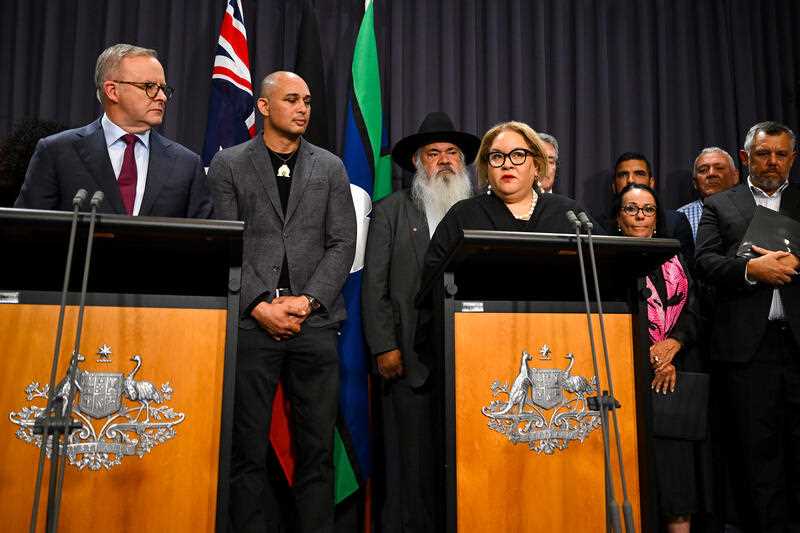The High Court will be left in no doubt that parliament retains its supremacy if the Indigenous voice referendum is carried, a key figure in its design says.
Prime Minister Anthony Albanese has released details of the referendum question and the new section of the constitution that will outline how the voice works and recognise Aboriginal people and Torres Strait Islanders as the “first peoples of Australia”.
Laws will be introduced to parliament late next week with the intention of being passed in June ahead of a referendum being held between October and December.
The developments come as Resolve Strategic polling, completed for Nine, shows support for the voice continues to slide, with the “yes” vote share down to 57 per cent this month compared with 64 per cent in September.
Opponents of the voice have seized on comments by a number of legal academics arguing the body could override the parliament.
Constitutional expert Greg Craven said the inclusion of the words “executive government” in the voice framework “actually takes the problems that people have identified with the preceding drafting and multiplies it”.
But referendum working group member Megan Davis said the wording released by the prime minister clarified the draft he released last year.
“All the dimensions of this voice are to be determined by the parliament and parliamentary sovereignty remains supreme or intact,” Professor Davis said.
“Not only is that enshrined in the constitution – it will be made very clear in the second reading speech and the materials that go along with it … so it will be apparent to any future High Court and all people that the voice and what it does is determined by the parliament.”
She said a number of constitutional lawyers from across the political spectrum were confident the amendment preserved “parliamentary supremacy”.
The poll showed support for the voice had fallen to 52 per cent in Queensland and Western Australia, although the results for both states were indicative only. National support for the voice has also dropped slightly since February.
About one in five of those surveyed agreed the voice should advise both the parliament and executive government, while 16 per cent said it should only advise parliament.
The survey was conducted ahead of Mr Albanese announcing the wording of the referendum question.
Opposition Leader Peter Dutton has called on Mr Albanese to release the advice provided by the solicitor-general, which Prof Davis said had been crucial to the design of the constitutional change.
Attorney-General Mark Dreyfus said he was not currently planning to release the advice.
“Mr Dutton knows that the former government didn’t make a practice of releasing solicitor-general advice, and we won’t be either,” he said.
The opposition’s shadow cabinet is expected to discuss the proposed constitutional change early next week.
Meanwhile, Transport Minister Catherine King said she would be pleased to get advice from the voice on issues in her portfolio, especially over land use and “interactions with country”.
“The voice provides that real opportunity for both the parliament to think about those issues but also the executive to do so as well,” she said.
By Paul Osborne and Cassandra Morgan in Canberra



